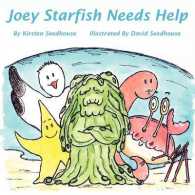Full Description
This Oxford Handbook challenges basic concepts that have informed the study of sociolinguistics since its inception in the 1960s. In 27 chapters, the book challenges the modernist positivist perspective of the field that has treated languages and speech communities as bounded and the idealized native speaker as the ultimate authority. Instead, it offers a critical poststructuralist perspective that examines the socio-historical context that led to the emergence of dominant sociolinguistic concepts and develops new theoretical and methodological tools that challenge these dominant concepts. The contributors to this volume take this critical poststructuralist perspective as a starting point for engaging in explorations of a range of sociolinguistic topics including language variation, language ideologies, bi/multilingualism, language policy, linguistic landscapes and multimodality. Each of the contributors provides a critical overview of the limits of modernist positivist perspectives on their topic and offer ways of theorizing and researching their topic in ways that are aligned with a critical poststructuralist perspective. The book also provides a global perspective on these issues with contributors focused on North and South America, Europe, Australia, and Africa. Together, the interdisciplinary and global contributions reveal the limits of conventional approaches to sociolinguistics and offer a glimpse into directions for the future of the field.
Contents
Introduction: Language and Society: A critical poststructuralist perspective (Ofelia García, Nelson Flores, Max Spotti)
1. Language and society: Historical overview and emergence of a field of study (Florian Coulmas)
2. Language, imperialism and the modern nation-state system: Implications for language rights (Stephen May)
3. Language and political economy (Alfonso Del Percio, Mi-Cha Flubacher & Alex Duchene)
4. Language and power (Luisa Martín-Rojo)
5. Language ideologies (Jonathan Rosa & Christa Burdick)
6. Language policy and local practices (Alastair Pennycook)
7. Language, migration, diaspora: Challenging the big battalions of groupism (Finex Ndhlovu)
8. Bi-multilingualism, globalization and super-diversity: Toward Sociolinguistic repertoire (Max Spotti & Jan Blommaert)
9. Diglossia and beyond (Jürgen Jaspers)
10. Language shift and sustainability: Critical discourses and beyond (Melissa Engman & Kendall King)
11. Discourses of endangerment from mother tongues to machine readability (Robert Moore)
12. Sign languages (H-Dirksen L. Bauman & Joseph Murray)
13. Multiliteracies & Transcultural Education (Lynn Mario Menezes de Souza)
14. Urban languages in African Contexts: Toward a multimodal approach to urban languages (Busi Makoni)
15. Indigenous peoples and their languages (Pia Lane & Miki Makihara)
16. Entry Visa Denied: The Construction of Symbolic Language Borders in Educational Settings (Guadalupe Valdés)
17. Linguistic profiling and discrimination (John Baugh)
18. From Gerontolinguistics to Elderspeak: Sociolinguistic myths (Sinfree Makoni)
19. Language and racialization (Anne Charity Hudley)
20. Language and sexuality (Tomasso Milani)
21. Linguistic landscapes (Luk Van Mensel, Mieke Vandenbrouke & Robert Blackwood)
22. Multimodality (Elisabetta Adami)
23. The Internet, language and virtual interactions (Piia Varis and Tom van Neunen)
24. Mediatization and the language of journalism (Tom Van Hout & Peter Burger)
25. Work (Melissa Moyer)
26. Bilingual Education (Nelson Flores)
Conclusion: Moving the study of Language and Society into the future (Nelson Flores, Max Spotti and Ofelia García)








